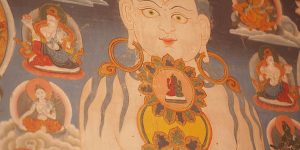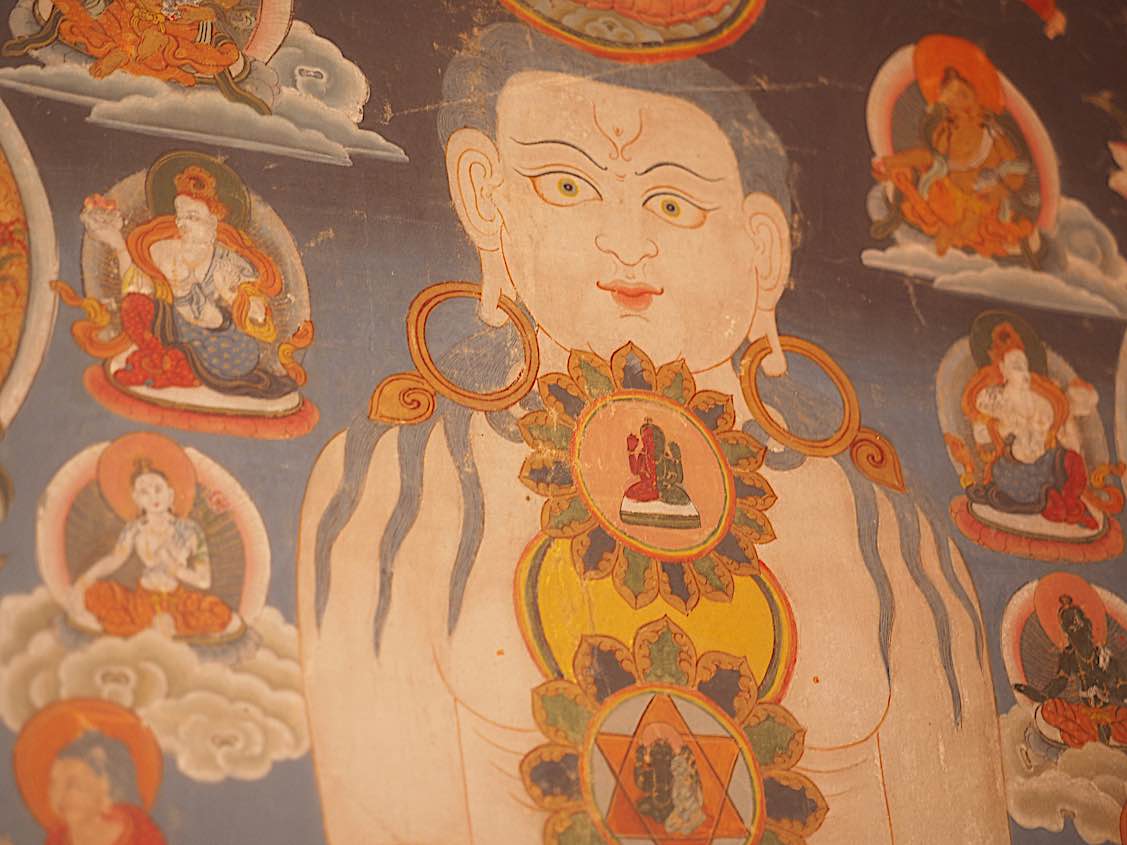Weekly Sutra: Hatthaka Sutta: Sleeping Well in the Cold Forest: “having cut all ties… he sleeps at ease… “
The humble, and short Hatthaka Sutta, carries several profound messages. It is particularly memorable as an “intimate” peak into life in the Sangha. The picture that emerges is of just how approachable the Buddha was to everyone. [Full Sutta translated below by Thanissaro Bhikku.]
In this lovely Sutta, a young man, Hatthaka, comes accross the Buddha sleeping in the cold forest on a cattle track. Although the Sutta may not have specifically been about “being content wherever you are” it certainly profoundly conveys the foolishness of seeking out personal comforts and other attachments.
“Having cut all ties
and subdued fear in the heart, calmed,
he sleeps in ease,having reached peace of awareness.”

Buddha describes how a house-holder, living in comfortable home, might not be as at ease as the Buddha sleeping on the cold ground. He describes the “fevers” that the Dharma help us overcome, in the context of the comfortable householder who is sick with delusions:
- Passion-born fevers
- Aversion-born fevers
- Delusion-born fevers.
In commentary, the Sutra is about many things, including, The four grounds for the bonds of fellowship, and “shared hardships” and “acting the same way behind a person’s back as to her face” are all themes in this small Sutta:
The Commentary defines consistency as sharing the same hardships and pleasures: eating together, sleeping together, observing the same precepts, not claiming any special privileges. Other traditional texts define consistency more in terms of reliability: acting the same way behind the other person’s back as one would to his/her face.
Yet, it is the lovely conversation between the young Hatthaka and the Buddha that makes this one of the most intimate and inspiring of Suttas.
To Hatthaka On Sleeping Well in the Cold Forest
Translated from the Pali by Thanissaro Bhikkhu.
On one occasion the Blessed One was staying near Alavi on a spread of leaves by a cattle track in a simsapa forest. Then Hatthaka of Alavi, out roaming and rambling for exercise, saw the Blessed One sitting on a spread of leaves by the cattle track in the simsapa forest. On seeing him, he went to him and, on arrival, having bowed down to him, sat to one side. As he was sitting there he said to the Blessed One, “Lord, I hope the Blessed One has slept in ease.”
“Yes, young man. I have slept in ease. Of those in the world who sleep in ease, I am one.”
“But cold, lord, is the winter night. The ‘Between-the-Eights’ [1] is a time of snowfall. Hard is the ground trampled by cattle hooves. Thin is the spread of leaves. Sparse are the leaves in the trees. Thin are your ochre robes. And cold blows the Verandah wind. Yet still the Blessed One says, ‘Yes, young man. I have slept in ease. Of those in the world who sleep in ease, I am one.'”
“In that case, young man, I will question you in return. Answer as you see fit. Now, what do you think: Suppose a householder or householder’s son has a house with a gabled roof, plastered inside and out, draft-free, with close-fitting door and windows shut against the wind. Inside he has a horse- hair couch spread with a long-fleeced coverlet, a white wool coverlet, an embroidered coverlet, a rug of kadali-deer hide, with a canopy above, and red cushions on either side. And there a lamp would be burning, and his four wives, with their many charms, would be attending to him. Would he sleep in ease, or not? Or how does this strike you?”
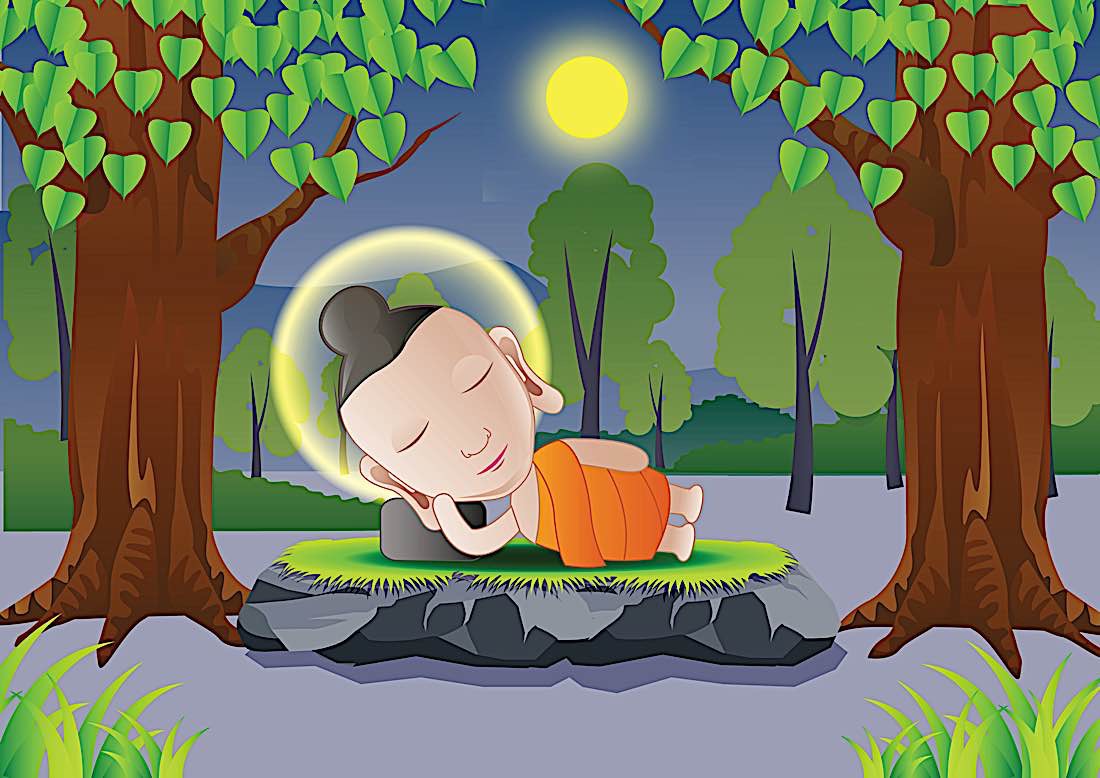
“Yes, lord, he would sleep in ease. Of those in the world who sleep in ease, he would be one.”
“But what do you think, young man. Might there arise in that householder or householder’s son any bodily fevers or fevers of mind born of passion so that — burned with those passion- born fevers — he would sleep miserably?”
“Yes, lord.”
“As for those passion-born fevers — burned with which the householder or householder’s son would sleep miserably — that passion has been abandoned by the Tathágata, its root destroyed, like an uprooted palm tree, deprived of the conditions of existence, not destined for future arising. Therefore he sleeps in ease.
“Now, what do you think, young man. Might there arise in that householder or householder’s son any bodily fevers or fevers of mind born of aversion so that — burned with those aversion-born fevers — he would sleep miserably?”
“Yes, lord.”
“As for those aversion-born fevers — burned with which the householder or householder’s son would sleep miserably — that aversion has been abandoned by the Tathágata, its root destroyed, like an uprooted palm tree, deprived of the conditions of existence, not destined for future arising. Therefore he sleeps in ease.
“Now, what do you think, young man. Might there arise in that householder or householder’s son any bodily fevers or fevers of mind born of delusion so that — burned with those delusion- born fevers — he would sleep miserably?”
“Yes, lord.”
“As for those delusion-born fevers — burned with which the householder or householder’s son would sleep miserably — that delusion has been abandoned by the Tathágata, its root destroyed, like an uprooted palm tree, deprived of the conditions of existence, not destined for future arising. Therefore he sleeps in ease.
“Always, always,
he sleeps in ease:
the Brahman totally unbound, who doesn’t adhere
to sensual pleasures,
who’s without acquisitions and cooled.Having cut all ties
and subdued fear in the heart, calmed,
he sleeps in ease,having reached peace of awareness.”
More articles by this author
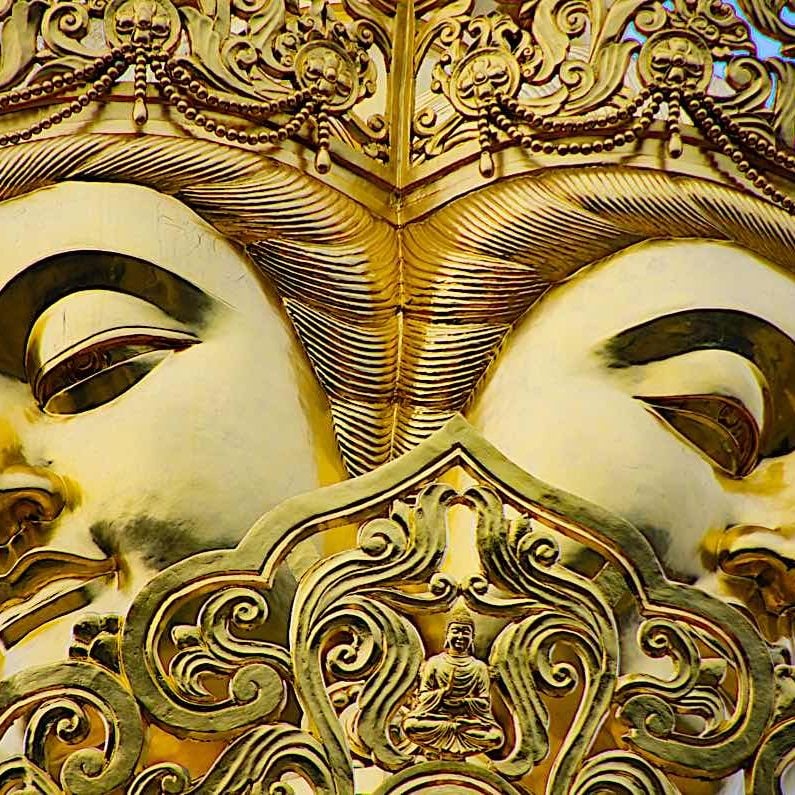
Samantabhadra’s The King of Prayers is the ultimate Buddhist practice how-to and itself a complete practice
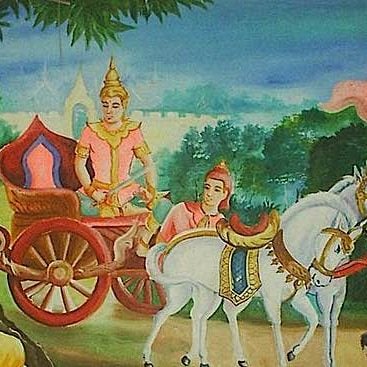
The Five Strengths and Powers or pañcabalā in Buddhism — the qualities conducive to Enlightenment: faith, energy, mindfulness, concentration and wisdom

Tara’s Great Dharani Supreme of all Mantras –with Music version– and the Sutra of Tara Who Protects from the Eight Fears: in Tara’s Own Words
Search
Latest Features
Please support the "Spread the Dharma" mission as one of our heroic Dharma Supporting Members, or with a one-time donation.
Please Help Support the “Spread the Dharma” Mission!

Be a part of the noble mission as a supporting member or a patron, or a volunteer contributor of content.
The power of Dharma to help sentient beings, in part, lies in ensuring access to Buddha’s precious Dharma — the mission of Buddha Weekly. We can’t do it without you!
A non-profit association since 2007, Buddha Weekly published many feature articles, videos, and, podcasts. Please consider supporting the mission to preserve and “Spread the Dharma." Your support as either a patron or a supporting member helps defray the high costs of producing quality Dharma content. Thank you! Learn more here, or become one of our super karma heroes on Patreon.
Lee Kane
Author | Buddha Weekly
Lee Kane is the editor of Buddha Weekly, since 2007. His main focuses as a writer are mindfulness techniques, meditation, Dharma and Sutra commentaries, Buddhist practices, international perspectives and traditions, Vajrayana, Mahayana, Zen. He also covers various events.
Lee also contributes as a writer to various other online magazines and blogs.






